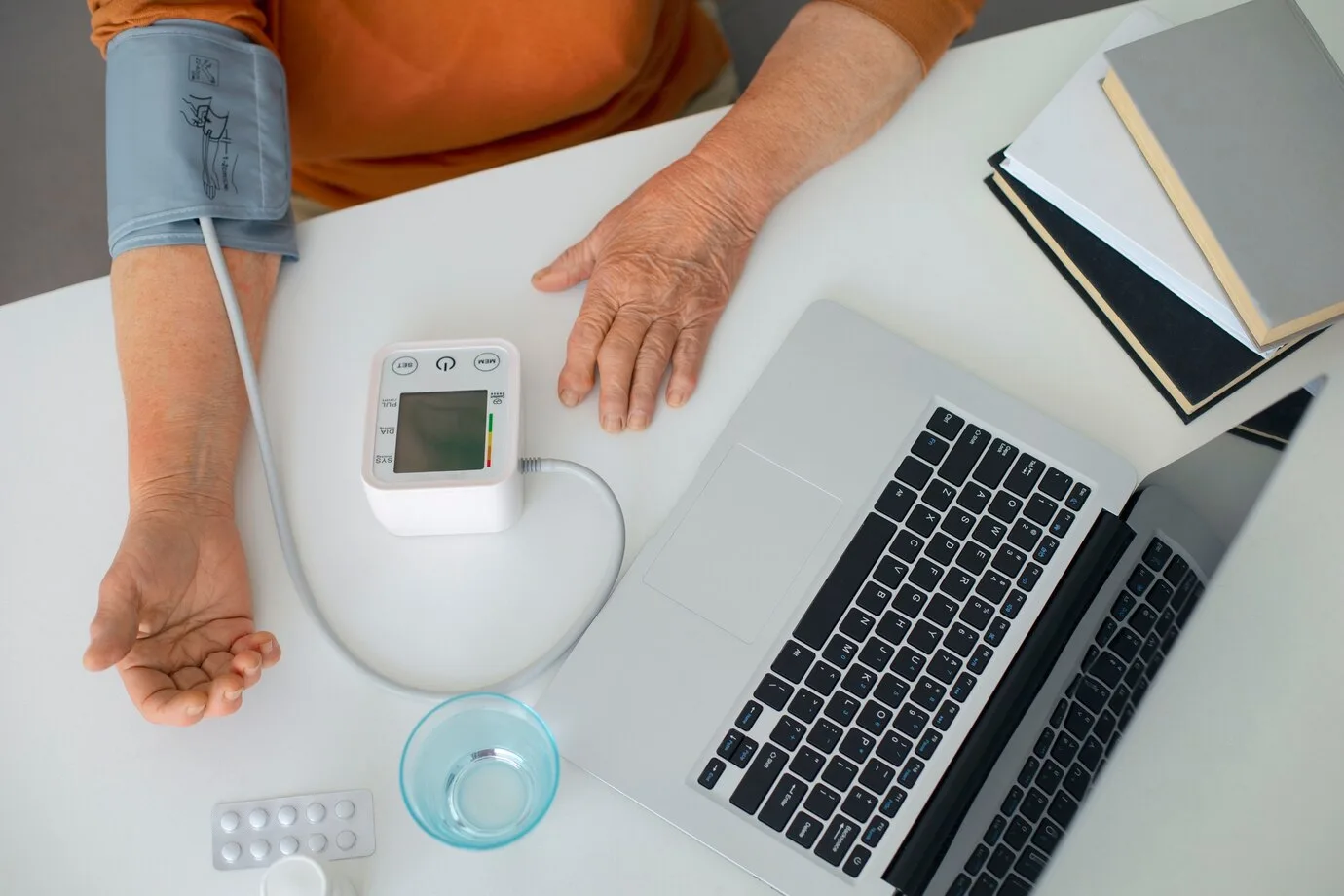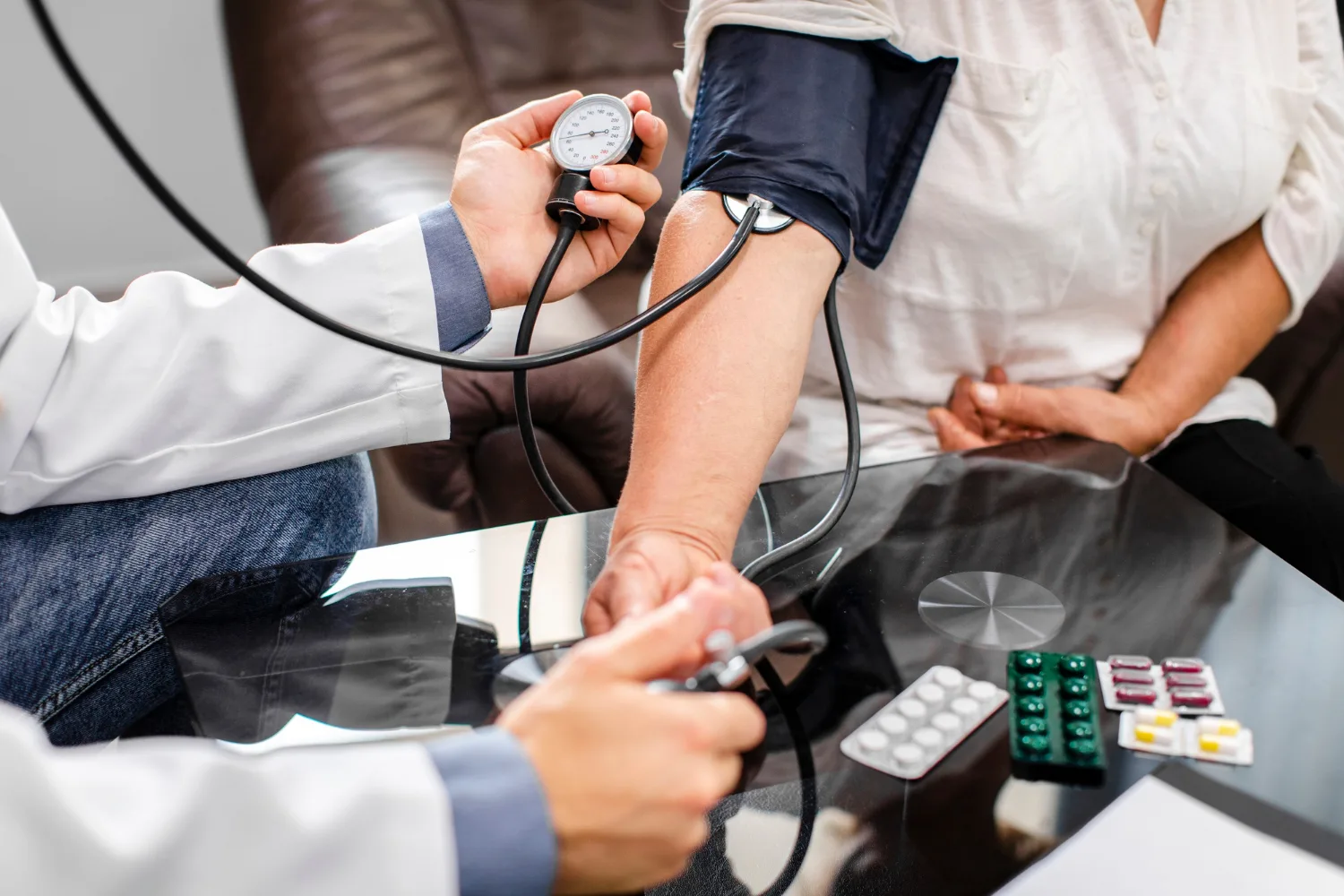Blood Pressure, Anxiety, And Heart Attacks: Understanding The Connection
Category: Cardiology
Your heart races, your palms sweat, and your breath becomes shallow. Is it just anxiety, or could it be something more? The relationship between blood pressure, anxiety, and heart attacks is complex and often misunderstood. While anxiety can make your heart pound, does it truly increase your risk of a heart attack? And how does blood pressure factor into this equation? In this blog, we unravel the intricate links between these conditions and explore ways to safeguard your heart health.
Understanding Blood Pressure and Its Impact on the Heart
Blood pressure refers to the force exerted by circulating blood against the walls of your arteries. It is measured in millimeters of mercury (mmHg) and recorded as two numbers:
- Systolic Pressure (Top Number): The force when the heart beats.
- Diastolic Pressure (Bottom Number): The force when the heart rests between beats.
High blood pressure (hypertension) occurs when the force against artery walls is consistently too high, making the heart work harder. Over time, this can lead to serious conditions, including heart disease, stroke, and heart attacks.
Anxiety and Its Effect on Blood Pressure
Anxiety is the body’s natural response to stress, triggering a cascade of physiological changes:
- Increased heart rate
- Elevated blood pressure
- Rapid breathing
- Muscle tension
While short-term anxiety spikes blood pressure temporarily, chronic anxiety can contribute to long-term cardiovascular problems. Persistent stress hormones like cortisol and adrenaline can keep blood pressure elevated, increasing strain on the heart.
Can Anxiety Lead to a Heart Attack?
While anxiety itself does not directly cause a heart attack, it can act as a catalyst in people with pre-existing heart conditions. Here’s how:
- Increased Blood Pressure: Chronic anxiety can lead to hypertension, a major risk factor for heart disease.
- Inflammation: Long-term stress can promote inflammation, damaging arteries and making plaque buildup more likely.
- Irregular Heart Rhythms: Anxiety can trigger arrhythmias, which may be dangerous in individuals with existing heart conditions.
- Unhealthy Coping Mechanisms: Stress often leads to poor lifestyle choices like smoking, overeating, or excessive alcohol consumption - all of which heighten heart disease risk.
Symptoms: Anxiety Attack vs. Heart Attack
Many symptoms of an anxiety attack and a heart attack overlap, causing confusion. Here’s how to differentiate:
Symptom | Anxiety Attack | Heart Attack |
| Chest Pain | Sharp, fleeting | Tight, crushing pain |
| Breathing Issues | Rapid, hyperventilation | Shortness of breath |
| Nausea | Common | Possible |
| Sweating | Common | Cold sweats |
| Pain Radiating | Rare | To arm, jaw, back |
| Trigger | Stress or fear | Often physical exertion |
If in doubt, seek medical attention immediately. It’s always better to rule out a heart attack than dismiss symptoms as anxiety.
Managing Blood Pressure and Anxiety for a Healthy Heart
Since blood pressure, anxiety, and heart health are closely linked, managing one often benefits the others. Here are some effective strategies:
1. Lifestyle Modifications
- Exercise Regularly: 30 minutes of moderate activity, like walking or yoga, helps regulate blood pressure and reduce anxiety.
- Eat a Heart-Healthy Diet: Reduce salt, saturated fats, and processed foods while increasing fruits, vegetables, and whole grains.
- Limit Stimulants: Caffeine and nicotine can spike anxiety and blood pressure.
- Stay Hydrated: Dehydration can exacerbate blood pressure fluctuations.
2. Stress and Anxiety Management
- Deep Breathing Exercises: Techniques like diaphragmatic breathing help slow heart rate and reduce anxiety.
- Mindfulness and Meditation: Proven to lower stress and improve overall heart health.
- Adequate Sleep: Poor sleep can increase stress hormones and blood pressure.
- Counseling or Therapy: Cognitive-behavioral therapy (CBT) helps in managing anxiety disorders.
3. Medication and Medical Interventions
- If diagnosed with hypertension, your doctor may prescribe medication to manage it.
- For severe anxiety, medications like beta-blockers can help regulate heart rate.
- Regular check-ups ensure early detection and management of cardiovascular risks.
Conclusion
Understanding the connection between blood pressure, anxiety, and heart attacks is crucial for maintaining heart health. While anxiety does not directly cause heart attacks, it can contribute to cardiovascular risk factors. By managing stress, maintaining a healthy lifestyle, and seeking medical advice when necessary, you can protect your heart and overall well-being.
For expert guidance on heart health, visit Lokmanya Hospitals - because your heart deserves the best care.
FAQs
1. Can anxiety cause permanent high blood pressure?
Anxiety can cause temporary spikes, but chronic stress may contribute to long-term hypertension. However, hypertension is usually caused by a combination of genetic and lifestyle factors.
2. Can controlling anxiety lower blood pressure?
Yes. Relaxation techniques, exercise, and therapy can help lower both anxiety and blood pressure.
3. What’s the safest way to calm anxiety during a blood pressure spike?
Deep breathing, progressive muscle relaxation, and avoiding stimulants like caffeine can help bring it down naturally.
4. How do I know if my chest pain is from anxiety or a heart problem?
If the pain is sharp and fleeting, it’s more likely to cause anxiety. If it’s persistent, crushing, or radiates to the arm or jaw, seek emergency care.
5. Can high blood pressure cause anxiety symptoms?
Yes, symptoms like dizziness, headaches, and palpitations can mimic anxiety, creating a cycle of stress.
6. Does heart rate increase with high blood pressure?
Not necessarily. While anxiety may cause both an increased heart rate and blood pressure, they do not always rise together.
7. Should I see a doctor if I have frequent anxiety attacks and high blood pressure?
Yes. A healthcare provider can determine if anxiety, hypertension, or an underlying heart condition is the root cause.






